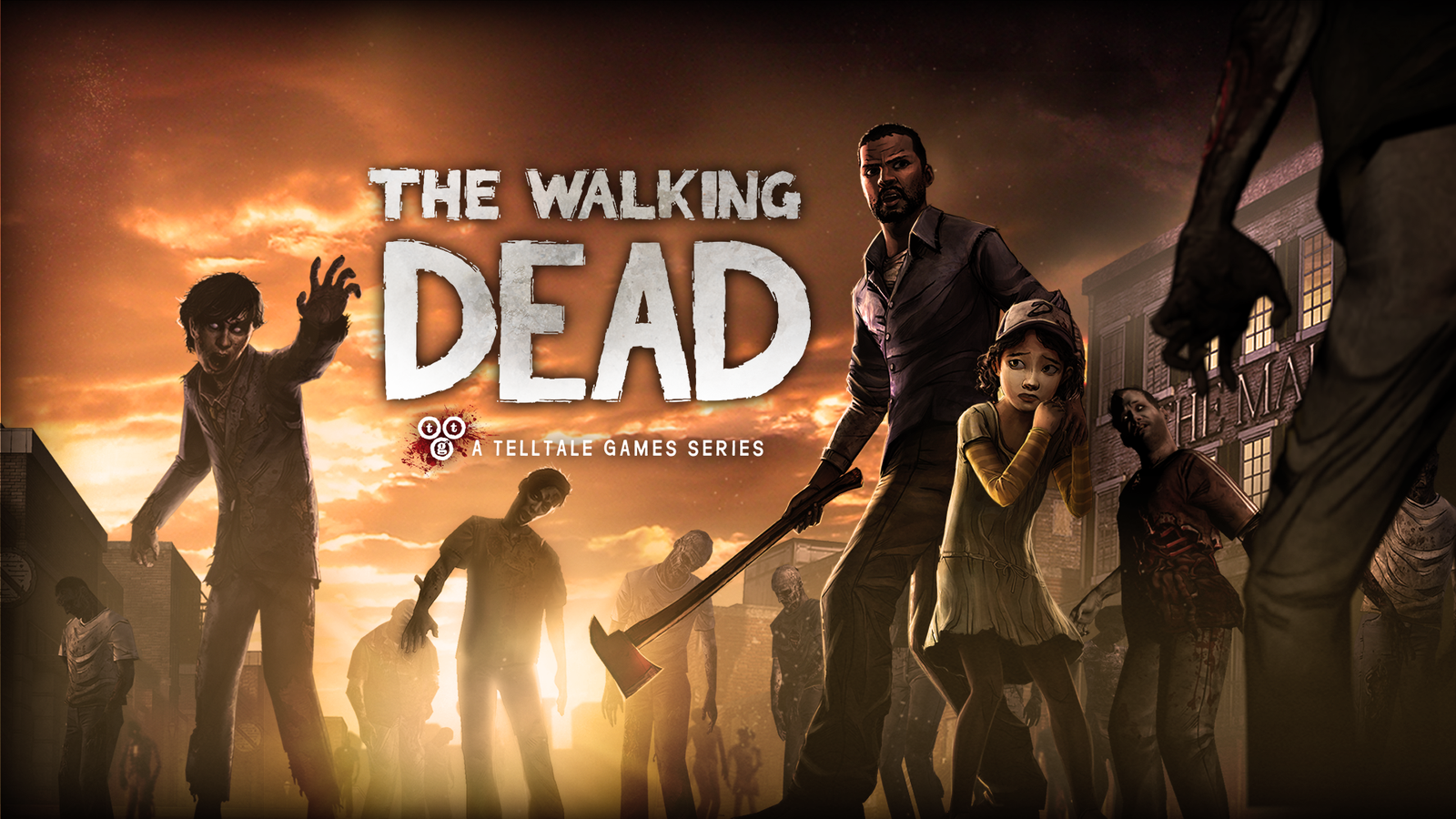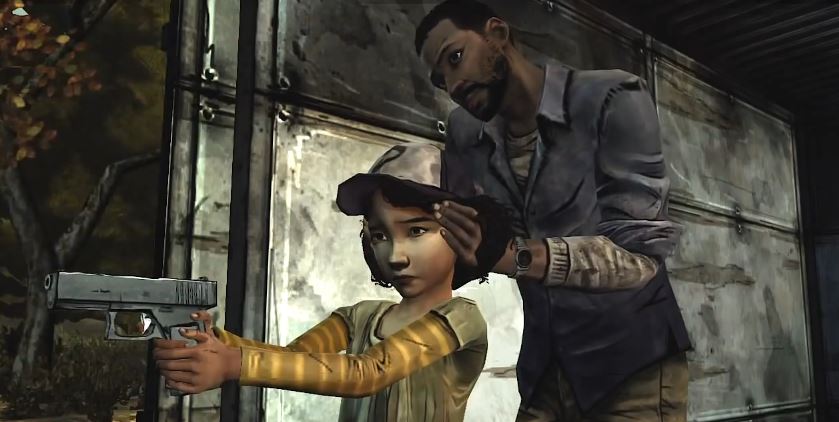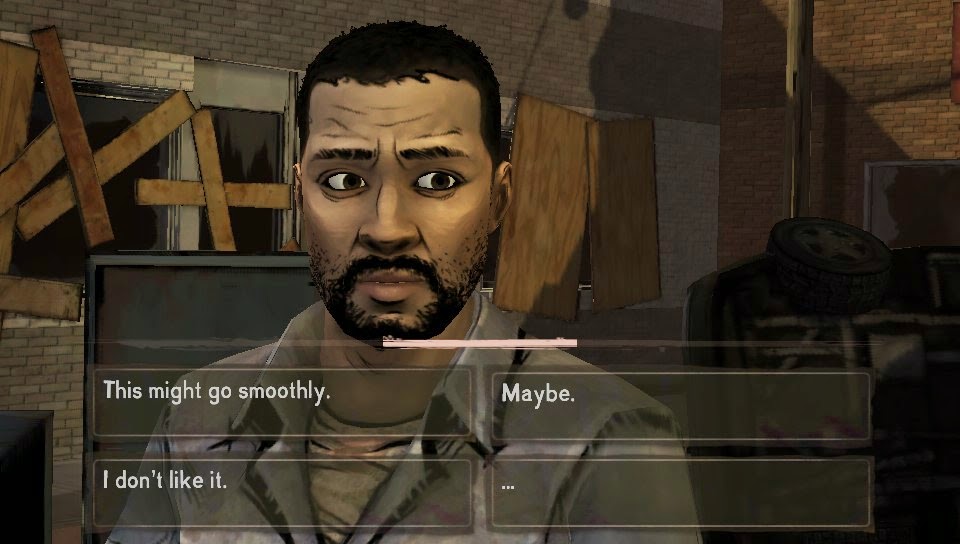
After a majority studio closure late last month, Telltale Games laid off the remaining members of its skeleton crew a few days ago. There were some preexisting signs that the studio was in trouble, namely a large series of layoffs late last year and a report of apparent company mismanagement earlier in March. That said the announcement still came as a shock to many, including employees. While the studio may have closed its doors, Telltale’s impact on the game industry should not be marginalized. In particular, it is arguable that The Walking Dead Season One was at the vanguard of a paradigm shift for the video game industry. Its widespread financial and critical success helped prove that games focused entirely on storytelling can be both critically acclaimed and popular, while simultaneously re-imagining the adventure game genre.
Although the first season of The Walking Dead had a lot in common with previous Telltale games, its decreased emphasis on puzzle oriented gameplay and its focus on a grim post-apocalyptic setting differentiates it from its mostly comedic, old-school predecessors. The game begins with an ex-college professor named Lee Everett being escorted to a prison in Atlanta. However, before he reaches his destination he finds himself caught up in the beginning of a zombie outbreak. Soon he befriends a young girl named Clementine, whose parents have likely been lost to the epidemic. From there the two forge and break alliances with various other survivors as they struggle against zombies as much as against human selfishness. While at the time post-apocalyptic zombie fiction was a relatively played out genre, the game’s most radical element was that the vast majority of the gameplay boiled down to light traversal, quick time events, and making decisions. Because of this, the game’s success relied entirely on the strength of its storytelling, which luckily was top-notch.

Admittedly, even upon its release this style of game wasn’t completely unique. For instance, Quantic Dream had already found some degree of critical and financial success with Fahrenheit in 2005, and Heavy Rain In 2010, two titles that also are also interactive storytelling experiences that heavily push the concept of player choice. But where Quantic Dreams games have always gotten by in large part because of the impressive breadth of their branching narratives, The Walking Dead was notable due to its excellent writing. The setting provided for the standard ruminations on mortality and fundamental horror that the zombie genre provides, but this was all heightened thanks to the likable characters and frequent moral dilemmas.
Lee made for a compelling protagonist, one whose backstory was shrouded in moral ambiguity due to his egregious previous crime, contrasted against his mild temperament and apparent kindness. The presence of Clementine allowed for a depiction of lost innocence in this world gone wrong, fully articulating the tragedy of the premise. The duo made for a great found-family, Lee’s natural empathy and sense of responsibility leaving him as a surrogate father with something to protect. The other characters that they met along the way weren’t all just self-interested marauders, they also had relationships with loved ones and understandable motivations that were sometimes justifiably at odds with your own. The rag tag group that you slowly formed was constantly in a state of peril, external and internal divisions providing great fodder for an abundance of difficult player decisions. While in retrospect it’s easy to look at all of the decisions present in TWD and come to the conclusion that they didn’t matter due the minimal degree of narrative branching, this realization doesn’t change how harrowing those decisions felt. Being put in a position to affect the outcomes of these well-written characters lives was effective, even if it was all somewhat illusory.

Over the year of its episodic release, The Walking Dead was heaped with praise, winning numerous Game of the Year awards. While it’s obviously difficult to measure the degree to which critical reception actually affects audiences, it is undeniable that publishers pay a great deal of attention to Metacritic scores, often determining bonuses and gauging a games success based on these numbers. In addition to its critical success, it also sold very well, and by January of 2013, it’s sales figures were at around 8.5 million episodes. The combination of these factors led to a number of structurally similar story-based episodic games, such as Life is Strange and the Kings Quest reboot. Telltale essentially turned The Walking Dead into its business model, acquiring the licenses to high-profile franchises so they could develop an abundance of similar interactive storytelling experiences.
But beyond the games that it directly inspired, The Walking Dead also served the important function of introducing many to the notion of story-driven games. Through leveraging the popularity of a booming television and comic franchise, many were pulled into the vortex of a genre they would likely normally avoid. While there were plenty of choice-oriented games with a focus on narrative before it, such as Mass Effect for instance, The Walking Dead gave birth to a new breed of adventure game, while pushing the extremes of how story-oriented a game could be. In the end, the studio may have succumb to some degree of complacency, spinning out several structurally identical titles, that were still based on their antiquated engine. But despite these shortcomings, Telltale’s output helped prove that there is a ravenous audience that responds positively to notion of a higher standard of writing in games. Telltale Games may be gone, but their contributions to their industry have made the gaming space far more interesting. Telltale, you will be missed.




